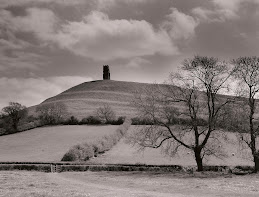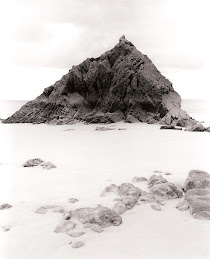"Gentlemen of the jury, the interest aroused by this case and the lobbying that has taken place over it are presumably well known to you."
Dear Demosthenes, up to his old tricks from the outset. Of course politically founded lobbying was paramount within an Athenian trial - before, during and afterwards - but Demosthenes would merely wish gently to remind the jurors that he knew it to be so, not in any way seek to make an alienating fuss in his opening speech.
The contextual clue of course is in the opening phrase, for where now would one hear reference to an all male jury? Would Demosthenes indeed have managed a 'Ladies and Gentlemen...' with a perfect Rumpolesque warmth, positively welcoming on board representatives of the 'She Who Must Be Obeyed' species?
I suspect he might, with perhaps some practising first. For is that not the mark of the true - if slightly slippery - orator that he (or indeed she) can make a compelling case out of any old set of materials to hand?
A backhanded compliment to the historian A J P Taylor was that he could successfully argue any case of historical causality before a band of eagerly scribbling students, only to return the following day to lecture quite the opposite with equal weight, thus causing consternation and dismay to same scribblers? His entire intention no doubt, and no bad thing for their independent intellectual development would be my view on the matter.
By why he - Demosthenes not AJP - tonight? 'Tis this. If I have regrets in life, one would have to be not ever grasping the ancient Greek tongue. We at school were, fairly arbitrarily, divided into Greeks and Germans. My lot falling to the latter, I can now reasonably enquire of any Herr or Frau the whereabouts of the nearest pharmacy should one ever be needed when out and about in Bavaria. I am, however, by consequence entirely reliant on translations when it comes to making my way through the delights of Herodotus or the difficulties of Aristotle. I do not feel, in that, I have had the greater part of the bargain.
Leaving though behind the regret of not being able to grapple with the original texts, there is little I find more soothing after a hard day's rectoring than to settle down with an ancient Greek author's thoughts on the world as it was, is or might yet be.
Particularly after today and, thus this evening, in especial Demosthenes. There are folk enough gifted at the the full art of public oratory, but I am not one such. Addressing a steaming conference horde on such a topic as 'The Rural Rector - a resource for troubled times?' is neither my choice nor my delight. The question is properly moot - these are troubled times and Rectors do have work to do therein - but I much would rather be out being as resourceful as I might than standing before several hundred of the steaming conference types trying to put that into words.
"Watch out for the thousand yard stare," has been Bro. George's advice on the matter. "If you see that in their faces you know you've lost them." He, being the sort of professional cove whose life is oft wrapped up in such matters, knows full well his onions here. You can sense yourself flying with the sheer wonder of your rhetoric, but when you glance down at the assembled steamers and see their eyes lost into some remote middle-distance, utterly oblivious of your presence and totally deaf to your implorings, well then it is time to wind up and to sit down.
Not saying it was quite that bad today, but in truth not that far off. So no Demosthenes me that for certain. Do I read him then, the assured and smooth speaker whose words echo down the centuries, with some envy? Not at all. I relish the charism he had, rather than growl for that which I do not.
But more on this, for yes my key consideration is that debate is but the beginning; perhaps not even a necessary matter and for certain not a sufficient. For my reading this evening has been interrupted by a woefully distressed telephone call from the wife of one of my farming parishioners. I knew he had been suffering down the years from the financial pressures of his life - little enough money in pigs at the best of times, and these are pretty well the worst of them - so I was not surprised, though of course saddened, to hear her tell me he had broken down completely and been taken away for some much needed medical treatment.
What shook me though from any post-conference blues were her words to describe his pre-admission state. "I knew I'd lost him, Rector, when I looked in his eyes and saw the thousand yard state." It was only then that I recalled the true and desperate origin of that phrase. Not dull conferences, but shell-shock in the trenches during the First World War gave rise to it. That was when they knew a soldier was down - his eyes fixed into some far-distant horror, unable to let go if it.
So are we now come to this, that men - and women too - are to be so crazed by the strife and strain of seeking to survive in the bedlam of economic meltdown that they too will crash as war-torn soldiers once did? Yes they are, is all that need be said. What then the totally average rural Rector is to do to help is not something I'll be asking dear Demosthenes to consider, howsoever an accomplished orator in matters of state. Higher forces for invoking tonight in something so personal and so pressing.
Subscribe to:
Post Comments (Atom)











No comments:
Post a Comment